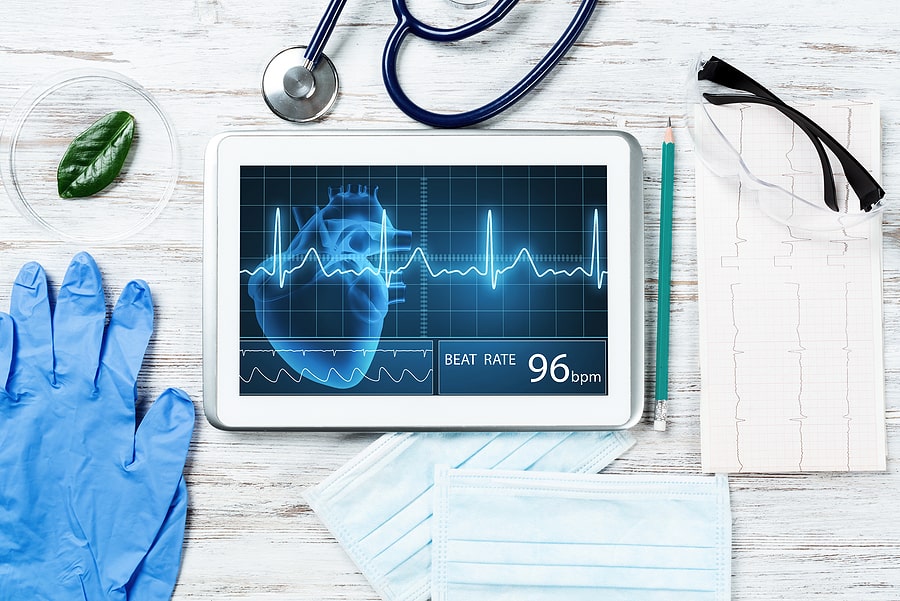Diagnostic Tests Used in Cardiology Can Save Your Health and Even Your Life
Posted by: Tampa Cardio
On: July 21, 2020

Potentially having a heart condition is one of the scariest feelings in the world. Our heart is the very center of our being. It is what keeps us going. That is why all of the doctors at Tampa Cardiovascular Associates felt so strongly about dedicating their lives to protecting the hearts of their patients.
The Cardiology Specialists at Tampa Cardio have gathered the best diagnostic equipment available all in one place to get you the best, most accurate, fastest results possible.
Diagnostic services we office include:
The Stress Echo
This test can be performed via exercise-based stress on a treadmill or chemical induced stress with medication and is paired with the visual schematic of the heart muscle using echocardiography. Depending on the movement of the heart muscle during stress, your physicians will decide on either the presence or absence of coronary artery disease as well as if there is a need for more extensive testing.
Electrocardiogram
An electrocardiogram is an in-office procedure that quickly gives the physicians essential information on the electrical health and mechanical condition of your heart.
Transesophageal Echocardiography
Often, used in conjunction with open heart surgical procedures, this technique is used in detecting and evaluating the presence of potential embolisms within a patient. Though, a more invasive alternative to transthoracic echocardiograms, this method typically provides the physician with clearer ultrasound images and better overall accuracy. Echocardiogram. This is an ultrasound-based study that is safe and effective and used to diagnose conditions of the heart that involve the valves as well as the pumping function of the heart.
Nuclear Stress Test
This is a test, performed in the office, involving either an exercise stress test on a treadmill or a chemical stress test that uses a medication to make your heart rate higher. Following the stress portion of the test, a nuclear medicine technologist will inject you with a radioactive tracer and images will be taken of your heart, allowing the physicians to see which areas of your heart receive enough blood and which areas do not. This test is safe and effective in the diagnosing of blockages in the coronary arteries.
Holter/Event Monitors
These are medical devices that serve as portable ECG’s. The patient can wear these devices within the comfort of their own home, while the rhythm of their heart is constantly monitored, and any changes or abnormalities are recorded for their physician’s review.
Arterial/Carotid/Renal Ultrasound
This is a sound wave-based procedure, performed in the office, to check for the presence of blockages in any of the arteries in the legs, neck, abdomen, or kidneys. This test defines the extent of such blockages and the need for further testing.
Venous Ultrasound
This is also a sound wave-based procedure, performed in the office, to check for blood clots in the veins and to check for the underlying causes of spider veins or varicose veins.
Segmental Pressure Testing or Ankle-Brachial Index (ABI)
In this method, blood pressure cuffs are placed and inflated at various points along a patient’s leg. These pressures are then compared to the pressure of the arm, helping to determine whether the current blood flow is adequate or if further action is needed.
Aortic Aneurysm Screening
An abdominal aortic aneurysm is a potentially life-threatening condition that often times shows no symptoms at all until it is too late. This preventative screening is painless and non-invasive and is especially recommended in men who are smokers or ex-smokers between the ages of 65 and 75.
Tilt Table Test
Similar to an exercise test in objective, a tilt table test involves the patient being strapped to a table while their blood pressure and heart are monitored. The table is then tilted in order to mimic various postures, from lying down to standing up.
24 Hour Blood Pressure Monitor
Because a person’s blood pressure fluctuates throughout the day, a single reading is no longer considered medically accurate. These 24-hour monitors are made so that the patient can wear them comfortably at home and provide physicians with vital information necessary to the patient’s condition and care.
To get started with your Tampa diagnostic testing,
Give us a call to schedule an appointment at
Tampa Cardiovascular Associates
(813) 975-2800. www.tampacardio.com
Posted by: Tampa Cardio
On: 21/07/2020
